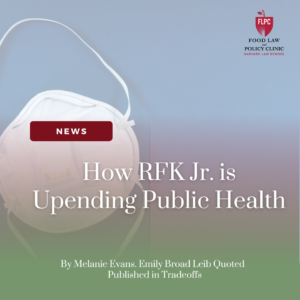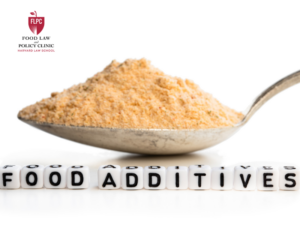This past weekend California Governor Jerry Brown signed AB 954, a bill encouraging food manufacturers, processors, and retailers responsible for the labeling of food products to use standard phrases to communicate quality and safety dates. The Harvard Law School Food Law and Policy Clinic (FLPC) has been working closely with advocates since the inception of the bill and we are excited to see California taking yet another serious step to curb food waste! Earlier last week, Governor Brown signed AB 1219, the California Good Samaritan Food Donation Act, into law; it expands and clarifies liability protections for food donations in California to help reduce waste and food insecurity at the same time. Both bills aim to reduce the 5.5 million tons of food sent to the landfill each year in California.

Research has proven that that labels are a major contributor to food waste. Since there are no federal standards for date labeling (with the exception of infant formula), states have enacted a broad range of date label laws, and manufacturers use a dizzying variety of date labeling language on food products. Date labels are generally not intended to communicate safety information, but consumers frequently misinterpret these quality estimates as indicators of safety, and many throw food away past the date due to fear of safety risks. Standardizing date labels can thus play an important role in reducing consumer confusion, and has been found to be the single most cost-effective solution to reducing food waste in the U.S.
AB 954 promotes the use of the terms “BEST if Used by” or “BEST if Used or Frozen by” to indicate a quality date, and the use of the terms “USE by” or “USE or Freeze by” to indicate a safety date. These phrases mirror the voluntary dual date label system (“BEST If Used By” for quality dates and “USE By” for safety dates) proposed by the Food Marketing Institute and Grocery Manufacturers Association earlier this year. The law also encourages manufacturers to develop alternatives to consumer-facing “sell-by” dates, which can increase confusion among consumers. This bill represents an important step forward, and this progress will improve the environment and increase food security, while saving money for consumers, businesses, and government.


